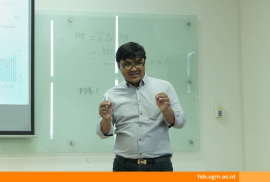The ASEAN Economic Community (AEC) that was put into force by the end of 2015 has posed a challenge to society and industry players in Indonesia. Now they not only compete with Indonesian businessmen and workers, but also from various countries who are highly competitive.
KAFEGAMA INITIATIVES which was launched by alumni of Faculty of Economics, Universitas Gadjah Mada hosted a seminar attended by three ministers and eight ministries on Tuesday (16/2) in Jakarta.
The seminar entitled Developing Populist Economy to Win the AEC is the first part of a series of seminars, Focused Group Discussions, and others. These all will produce a business and economic recommendation in the end to be submitted to President Joko Widodo in a bid to support the Trisakti and Nawacita government missions.
Co-ordinating Minister for Maritime Affairs and Resources, Rizal Ramli, said there were three ways that can be taken in the implementation of the AEC: gaining aid from Western countries or donors, obtaining aid from two Asian giants (China and India) that have huge liquidity, or relying on own power.
“The best alternative is the third, relying on our own power. This can only be achieved through enhancing populist economy, or an economy that is based on our own power as well as consumption and development of the country,” said Minister Rizal.
According to the Minister, there are things to be relatively quick to be developed if government is committed in giving facilities, such as permit and funding. He pointed out an example of Indonesian tourism potential that is much higher than all ASEAN countries, but in fact, tourists coming to Indonesia only averages 10 millions per year, far below the figures for Thailand (30 millions) and Malaysia (27 millions).
“Those two countries have actually much smaller areas than Indonesia. Therefore, tourism sector will be the focus of government apart from other sectors,” he added.
Another example is the export of fish from Indonesia that is still far below those of Thailand and Vietnam. Thus, the government is committed in supporting industrial sectors that can increase its competitiveness and are seen as strategic.
Source: ugm.ac.id




